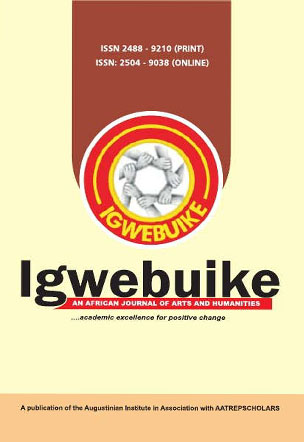
Vol. 8 No. 2, 2022
ABSTRACT
Identity is that part of an individual’s self which derives from his knowledge of his membership of a social group (or groups), together with the value and emotional significance attached to that membership. Philosophically, identity is from the Latin word identitas meaning sameness. Leibniz gives a modern formulation of the concept of identity as the relation each thing bears only to itself and it concerns a relation, specifically, a relation that x and y stand in if, and only if they are one and the same thing or identical to each other (that is, if, and only if x=y). Locke speaks of personal identity and survival of consciousness following this understanding. The criterion for identity specifies, insofar as that is possible, the necessary and sufficient conditions for the survival of a thing. Humans are confronted with questions on identity in a world where flexibility is seen as a virtue and accelerating change pervades society. Again, “identity” is a predicate, which functions as an identifier, that is, a marker that distinguishes and differentiates one object from another object. Thus, identity in this sense focuses on the uniqueness of the concerned object. This paper critically analyzes the concept of identity within the framework of making sense of what can be called the marker for African Identity along the lines of communalism.
